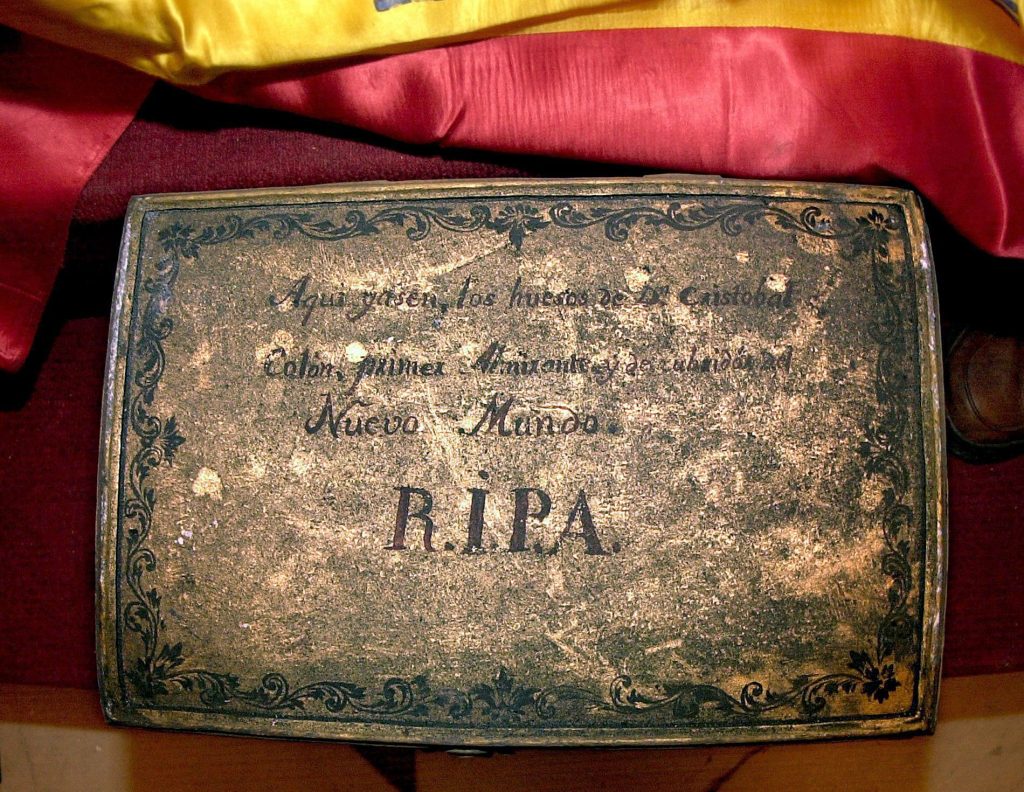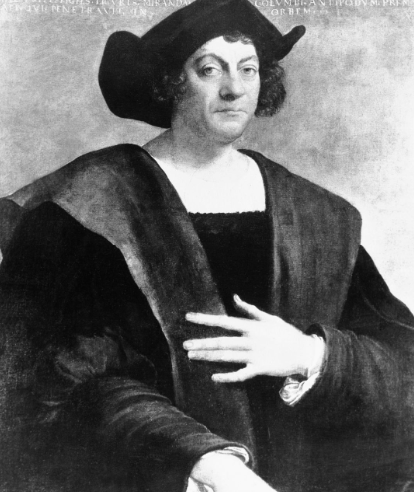Spanish scientists appear to have resolved the centuries-old mystery surrounding the origins of 15th-century explorer Christopher Columbus, revealing that he was likely a Sephardic Jew from Western Europe.
For over 500 years, historians and nations have speculated about Columbus’ background, with theories suggesting he hailed from Genoa, Italy, or even Basque, Portuguese, or Greek origins. The uncertainty surrounding his nationality and burial place has long fueled debate. However, a recent 22-year forensic investigation led by expert José Antonio Lorente, using DNA from remains buried in Seville’s Cathedral—believed to be Columbus’ final resting place—has provided new insights.

An image showing the box which contains the remains of Cristobal Colon (Christopher Columbus) with the text in antique Spanish ‘Here the bones of Cristobal Columbus rest, the first admiral and discoverer of the New World. R.I.P’, 02 June 2003. The remains were exhumed at the Seville cathedral in Seville, Andalusia, southern Spain, today. A team of researchers from Spanish Granada University exhumed the remains to examine the authenticity of the remains and research the life of Columbus. EPA-PHOTO/EFE/EMILIO MORENATTI
Lorente confirmed that the DNA from the remains was indeed Columbus’ and compared them with those of his known relatives. “We have very partial, but sufficient, DNA from Christopher Columbus. We have DNA from Hernando Colón, his son,” explained Lorente. “And both in the Y chromosome (male) and in the mitochondrial DNA (transmitted by the mother) of Hernando there are traits compatible with Jewish origin.”
The findings were revealed in a documentary titled Columbus DNA: The True Origin, broadcast on Spain’s RTVE on October 12. The results suggest Columbus was part of the Sephardic Jewish diaspora, a group historically linked to the Iberian Peninsula. Prior to their expulsion in 1492 under the Catholic monarchs Isabella and Ferdinand, roughly 300,000 Jews lived in Spain. The monarchs had decreed that Jews and Muslims must convert to Catholicism or leave the country, sparking widespread persecution.
Despite the complex data and Columbus’ elusive past, Lorente expressed confidence in the outcome of the research, describing it as “almost absolutely reliable.”





